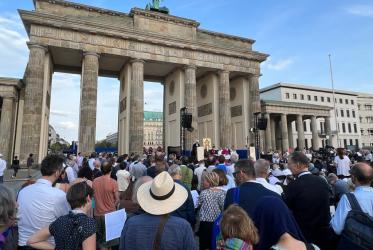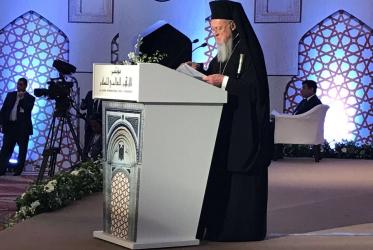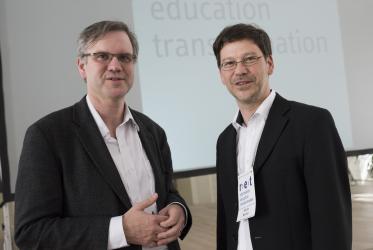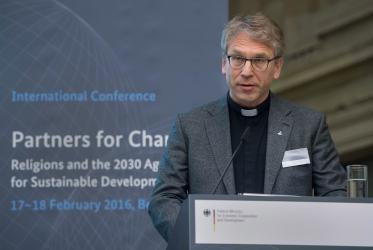Displaying 1 - 20 of 28
"A world free from nuclear weapons is possible"
11 September 2023
WCC well-represented in Religions for Peace leadership
07 October 2019
Religions for Peace assembly convenes in Lindau
19 August 2019
A moment in ‘Time’: an interreligious vision in Erlangen
20 December 2018
G20 summit: call to pray for peace in Hamburg
07 July 2017
Facilitating peace with passion
26 July 2016
Symposium focuses on religion, violence, extremism
04 February 2016
WCC/UN conference calls for coordinated action on refugee crisis
20 January 2016
At Nordic conference, Tveit reflects on role of hope in advocacy
12 January 2016















